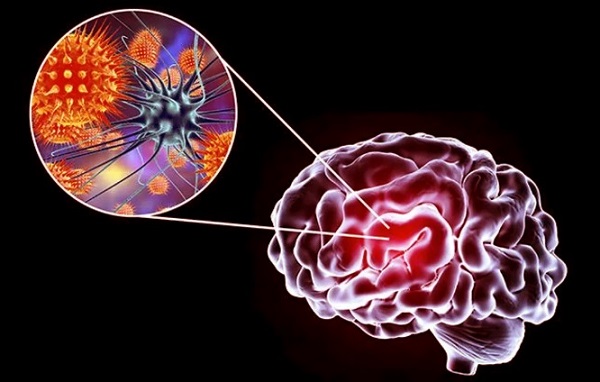Nikhil Prasad Fact checked by:Thailand Medical News Team Jul 14, 2025 7 months, 1 week, 4 days, 4 hours, 16 minutes ago
Medical News: Researchers from American University in Washington DC, the District of Columbia Center for AIDS Research, and the National Institute of Mental Health have uncovered alarming insights into how HIV continues to damage the brain—even in patients receiving effective treatment. While modern antiretroviral therapies can control the virus in the bloodstream, they fail to eliminate HIV lurking within the brain, where it silently fuels chronic inflammation and severe neurological decline.
 HIV Triggers Dangerous Brain Damage Through Oxidative Stress
HIV Triggers Dangerous Brain Damage Through Oxidative Stress
This
Medical News report reveals that even with suppressed viral loads, people living with HIV face significant risks of developing HIV-associated neurocognitive disorders (HAND), including memory loss, cognitive decline, and even symptoms that resemble Alzheimer’s disease. The damage is largely driven by oxidative stress—a destructive chemical imbalance caused by an overload of reactive oxygen species (ROS) unleashed by HIV proteins in the brain.
How HIV Sneaks into the Brain and Wreaks Havoc
The virus manages to cross the blood-brain barrier using infected immune cells as “Trojan horses.” Once inside, HIV proteins like gp120, Tat, Nef, and Vpr activate the brain’s immune cells, especially microglia. This sets off a chain reaction of oxidative stress, where toxic ROS molecules attack neurons and disrupt calcium balances, leading to cell damage and death. The viral protein gp120, in particular, was shown to trigger ROS in brain support cells (glia), which then release inflammatory chemicals like IL-1β that harm nearby neurons.
Tat and Nef proteins also amplify oxidative stress. Tat promotes Alzheimer’s-like plaque buildup and tangled nerve fibers, while Nef hijacks the brain’s defense systems to escalate ROS production and chronic inflammation. Vpr, another HIV protein, targets mitochondria—our cellular powerhouses—causing them to leak ROS and trigger apoptosis (programmed cell death). Even the HIV reverse transcriptase enzyme, used to copy the virus’s genetic material, contributes to ROS overload and is linked to cancer-like changes in cells.
Long-Term Brain Damage and Its Link to Dementia
Chronic oxidative stress from HIV not only kills neurons but also leads to the buildup of toxic lipids like 4-HNE and ceramide. These chemicals are associated with Alzheimer’s and Parkinson’s-like symptoms. In fact, dopamine-producing neurons—key to motivation and emotion—are especially vulnerable. Studies in rats showed that exposure to gp120 alone was enough to kill these neurons rapidly unless antioxidants were used.
This suggests that oxidative stress is not just a side effect but a major cause of HIV-related brain disease, making it a critical therapeutic target.
Promising but Challenging Treatments
Although antioxidant therapies such as N-acetylcysteine (NAC) and vitamin supplements have
shown some promise in early studies, results have been mixed. Factors like poor drug penetration into the brain and the complexity of HIV neuropathology have limited success. However, researchers are exploring newer compounds like dimethyl fumarate (DMF) and PARP inhibitors that may help reduce inflammation, protect neurons, and even reactivate dormant HIV for immune elimination.
Conclusion
Despite controlling HIV in the blood, the virus continues to damage the brain through oxidative stress and inflammation. These hidden effects can lead to long-term cognitive problems and dementia-like symptoms in people living with HIV. Understanding how viral proteins trigger ROS production offers new hope for treatment. Combining antiviral therapy with antioxidants and inflammation blockers may help protect brain health in the future. Continued research is essential to ensure people living with HIV not only live longer but also maintain their mental sharpness and quality of life.
The study findings were published in the peer reviewed International Journal of Molecular Sciences
https://www.mdpi.com/1422-0067/26/14/6724
For the latest HIV news, keep on logging to Thailand
Medical News.
Read Also:
https://www.thailandmedical.news/news/how-neurotropic-viruses-such-as-influenza-hiv-herpes-affect-the-human-brain-to-cause-neuropsychiatric-disorders
https://www.thailandmedical.news/news/hiv-protein-nef-linked-to-heart-disease
https://www.thailandmedical.news/news/new-insights-of-bone-health-in-hiv
https://www.thailandmedical.news/articles/hiv-aids
